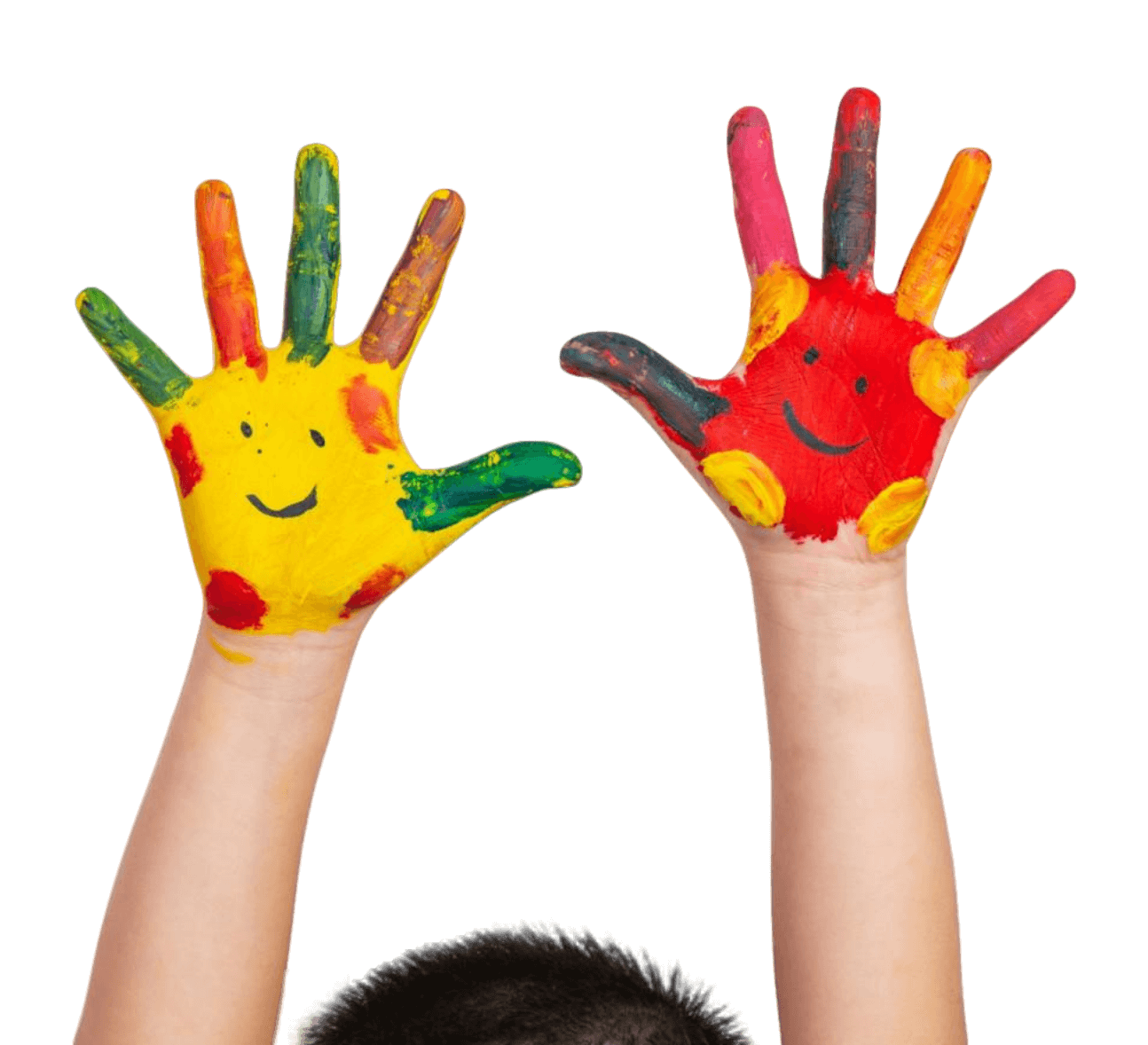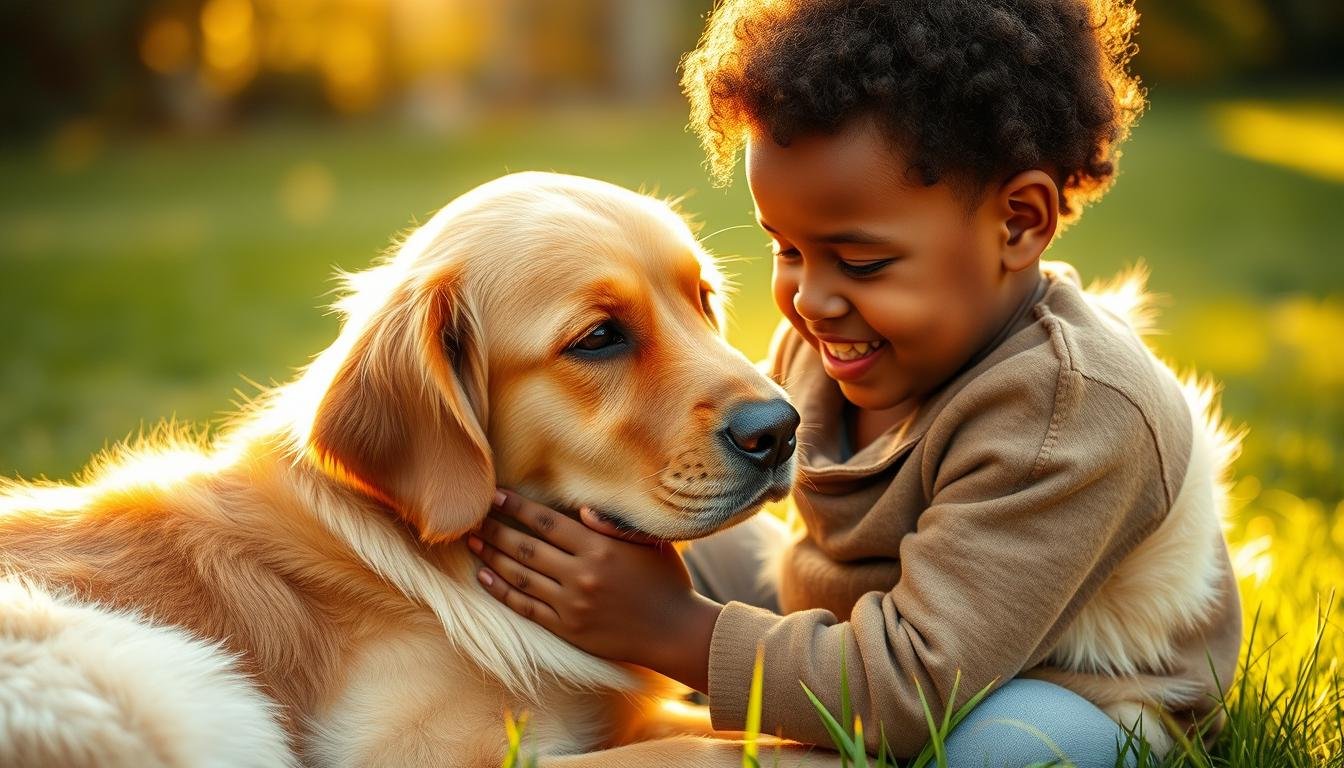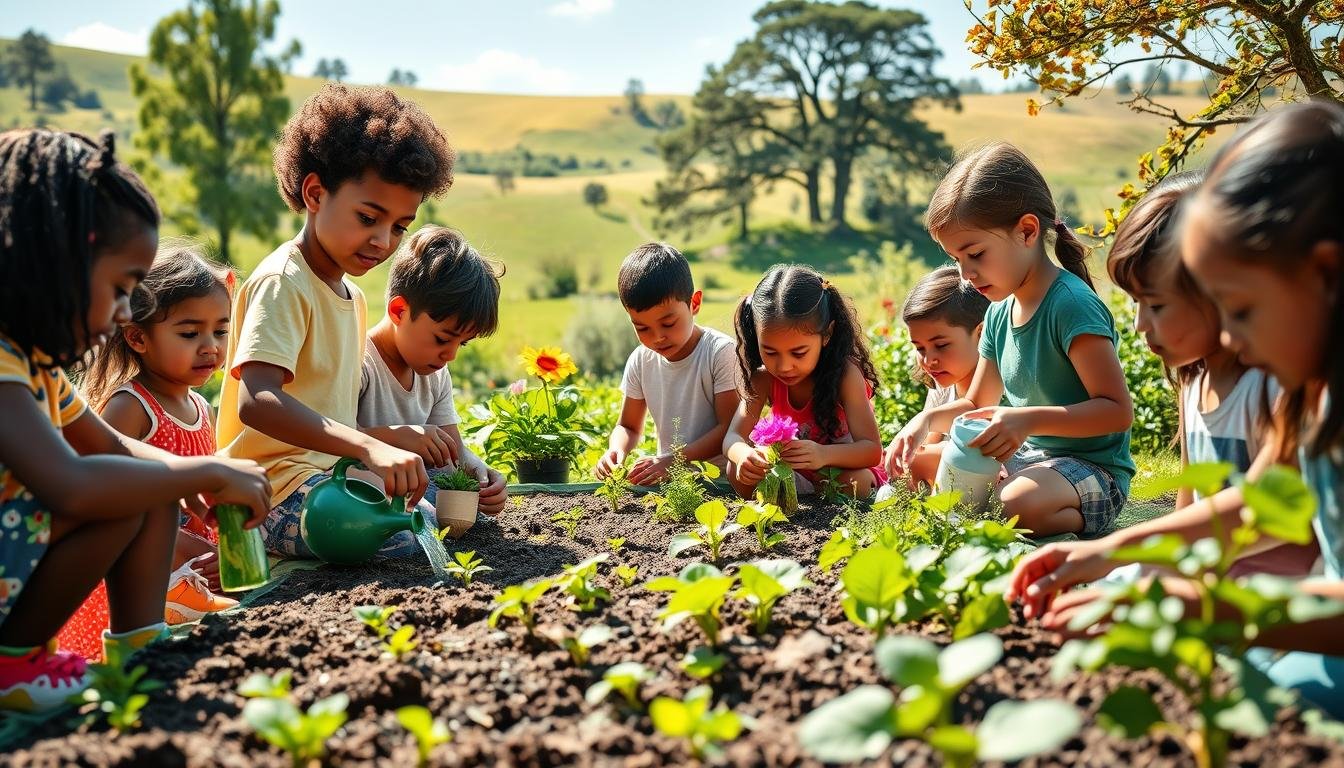Did you know that encouraging a growth mindset for children is more than a good idea? It’s a method proven to boost learning. Dr. Carol Dweck’s research shows people with a growth mindset achieve more happiness and success. We, as caregivers, play a huge role in fostering resilience and nurturing learning in our kids. Let’s commit to empowering our kids this year. We’ll create a plan focused on mindset strategies for kids to help their developmental mindset. This carefully planned approach boosts their path to success and lifelong learning joy.
Starting this journey means teaching kids to see challenges as learning opportunities. It’s crucial for dealing with life’s complexities. We empower kids to move past negativity and their own limits. This boosts their confidence and unlocks their true potential.
We’re here to guide you in making a detailed growth mindset plan. Our goal? To shape kids into hardworking learners who see the value of their efforts and strategies. Using tools like growth mindset posters and mindset journey cards makes our message resonate in their surroundings.
With activities like learning origami, project-based learning, and mindset quotes, we guide kids from a fixed to a growth mindset. For children with unique needs, we find special gifts that match their interests and abilities. We choose gifts that promote an inclusive environment, celebrating each child’s growth path.
Understanding the Impact of a Growth Mindset
We know how important a supportive environment is for kids during their early years. At its heart, a growth mindset believes in developing abilities and smarts through effort and persistence. This outlook greatly influences how kids face challenges and setbacks. Teaching kids about the power of growth mindset can boost their academic performance and give them the tools to tackle life confidently.
Let’s look at some key points:
- Kids with a growth mindset see challenges as chances to get better. This view is essential for both school and personal improvement.
- Emphasizing effort over talent helps kids keep going even when things get tough. They learn to see failure as a step in the learning process.
- Encouraging a growth mindset helps children love learning. This curiosity stays with them, reaching beyond school walls.
| Comparison | Fixed Mindset Behavior | Growth Mindset Advantages |
|---|---|---|
| Approach to Challenges | Students tend to avoid | Viewed as opportunities for learning |
| Handling Feedback | Often defensive or indifferent | Seen as valuable and used for improvement |
| Effort & Persistence | Limited, due to fear of failure | Consistent, understanding effort as path to mastery |
| Academic Performance | Varies, often restricted by self-doubt | Consistently higher, fueled by perseverance and resilience |
To maximize Dr. Dweck’s insights, we must embrace growth mindset practices. It’s about praising kids in a way that acknowledges their efforts and resilience. We should help them understand that mastering skills takes time, encouraging the use of ‘yet’ to show they are on a learning path.
Key Characteristics of a Growth Mindset in Children
Growth mindset principles are key, yet often missed. They include facing challenges, loving to learn, and being resilient. These traits are learned, not born. Carol Dweck found praising effort over intelligence leads kids to tackle tough tasks. This shows them that skills grow with hard work, a core growth mindset idea.
Let’s explore how life improves when children adopt a growth mindset:
| Statistic | Impact on Children |
|---|---|
| 90% show improved academic performances | Children with a growth mindset achieve better school results over time. |
| 65% more likely to embrace challenges | Kids see failures as learning opportunities, enhancing their personal growth. |
| 80% develop stronger belief in self-improvement | Praise for effort boosts their self-efficacy, encouraging continuous effort. |
| 15% more likely to display curiosity | A growth mindset environment stimulates their interest to explore new ideas. |
| 3 out of 5 persevere in the face of challenges | Having role models with growth mindsets leads to more resilient kids. |
Dweck also says nurturing a growth mindset leads to success in school and life. Kids become strong, happy, and very resilient. Growth mindset thrives in supportive places. By valuing effort over results, we show kids their brains can grow. This way, kids learn that it’s about the journey, not just quick answers.
Creating a Supportive Environment for Mindset Development
Creating a mindset for success and happiness starts with a supportive learning atmosphere. We believe this is not just a theory but a real approach needing specific actions and words. Nurturing a mindset is essential. We see every challenge as a chance to learn. This view encourages students, teachers, and parents to believe that abilities and smarts can grow.
Empowering kids with confidence is key to growth. Dr. Carol Dweck says connecting mindset development with results like happiness and success is essential.
- Week One: Begin with the basics of mindsets, explaining the difference between growth and fixed ones. Include discussions on neuroplasticity—the brain’s ability to change through learning.
- Week Two: Do exercises to move from a fixed to a growth mindset. Use tools like rgowth mindset posters and mindset journey cards.
- Continuous Learning: Keep kids engaged with goal-based journaling. The SMART framework helps set and track realistic goals, supporting mindset growth.
Using Prodigy Education’s Motivation First idea helps a lot. It shows the role of mindsets in doing well in school and growing personally. This method boosts math skills and keeps students interested when they adopt a growth mindset.
In these environments, students often say, “I’m not good at this yet.” This attitude builds patience and the strength to keep trying. It shows learning new things takes time and hard work. By using these strategies, we create a supportive space for kids to thrive. This ensures every child has a chance to reach their full potential. And makes learning a rewarding experience.
Designing a Step-by-Step Growth Mindset Plan for Kids
As parents and educators, we all want to help our kids succeed and be strong. A growth mindset guide can really make a difference. It’s not just about school success; it prepares them for life’s tough times too. In this discussion, we’ll explore some steps to develop such a mindset at home and school.
Starting growth at home means understanding how a growth mindset helps. Kids get inspired by seeing real-life examples. People like Oprah, Tony Robbins, and Colonel Sanders show that learning and trying hard pays off.
- Begin by teaching them that the brain gets stronger when they try hard, much like muscles.
- Talk about the value of not giving up and learning from mistakes. Use stories of people or situations they know to illustrate this.
- Always encourage them by using words that highlight growth. Phrases like “yet” or “learn” can really change how they see challenges.
- Use things like posters or journals to keep them motivated about their growth journey.
Here’s how you can put a more formal plan in action:
| Age Group | Weekly Focus | Activities |
|---|---|---|
| Toddlers | Exploring new words | Reading books with themes of perseverance |
| Preschool | Acknowledgement of effort | “Effort” stickers for trying new activities |
| Primary-aged Children | Setting personal goals | Goal setting workshops; Use of Digital Data Notebooks |
| Teens | Reflection and growth | Weekly reflection sessions using exit tickets |
| Teachers | Cultivating classroom culture | Training on growth mindset strategies, and sharing personal growth experiences |
Our mindset plan turns “I can’t” into “I can’t yet,” reshaping how kids see their abilities. By weaving mindset methods into everyday life and schooling, we help our kids face challenges head-on. Let’s use these carefully made plans to encourage our children to become resilient and well-adjusted people.
Activities and Resources to Foster a Growth Mindset
We understand how key it is to help young minds grow. It’s about making positive experiences in learning. These experiences help kids become strong and love finding out new things. Using the right growth mindset activities can change how kids see school and learning forever.
There are many educational resources out there to help build this mindset. Activities like the ‘Yet’ Pathway and Mistake Masters are fun. They teach kids the power of believing they can improve, which is a big part of mindset encouragement.
Aside from games, speech therapy exercises are great for early talking skills. These skills are basic for starting a growth mindset. Exercises, along with writing in growth mindset journals, let kids set good goals and tackle problems.
- Weekly challenges that show kids the difference between growing and staying the same.
- Activities like writing in a journal to think about what they’re learning and their challenges.
- Games that help with solving problems and working with others, like Kindness Challenge Quest and Escape Room Adventures.
Here’s a table that shows some top activities and what they’re good for:
| Activity | Key Benefits |
|---|---|
| The ‘Yet’ Pathway | Makes kids more persistent, resilient, and motivated |
| Mistake Masters | Teaches that making mistakes is part of learning |
| Escape Room Adventures | Boosts skills in solving problems, working with others, and sticking with it |
These growth mindset activities do more than teach. They create a space where kids want to learn and take on challenges. They show kids how to use a growth mindset every day. This lets kids believe in themselves and keep getting better—an important part of growth mindset.
Conclusion
Exploring the benefits of a growth mindset has shown us it’s more than just a method. It’s key for kids to love learning all their lives. Kids who embrace growth mindset principles transform how they tackle problems, handle failures, and reach their aims. Studies show these children do better in school and become resilient, creative, and confident. These traits are crucial for a positive and team-based learning atmosphere.
At Kids Miracle Steps, we see how vital a growth mindset is for success and well-being. It leads to better grades, friendships, and a good attitude towards learning. We’re here to help, providing a supportive space where your child can learn to face challenges optimistically. Through conferences, using specific books, or making resilience part of daily lessons, our aim is continuous support to make growth mindset a core part of their being.
For parents watching their kids advance through school, the value of a growth mindset is clear. It helps bridge academic and social skills, and emotional understanding. True change needs commitment, patience, and action from us all. We invite you to check out Kids Miracle Steps. Our resources are designed for this journey. Together, we can build a strong foundation of passion, resilience, and flexibility in your child. Let’s create growth mindsets that go beyond school and prepare tomorrow’s leaders.






